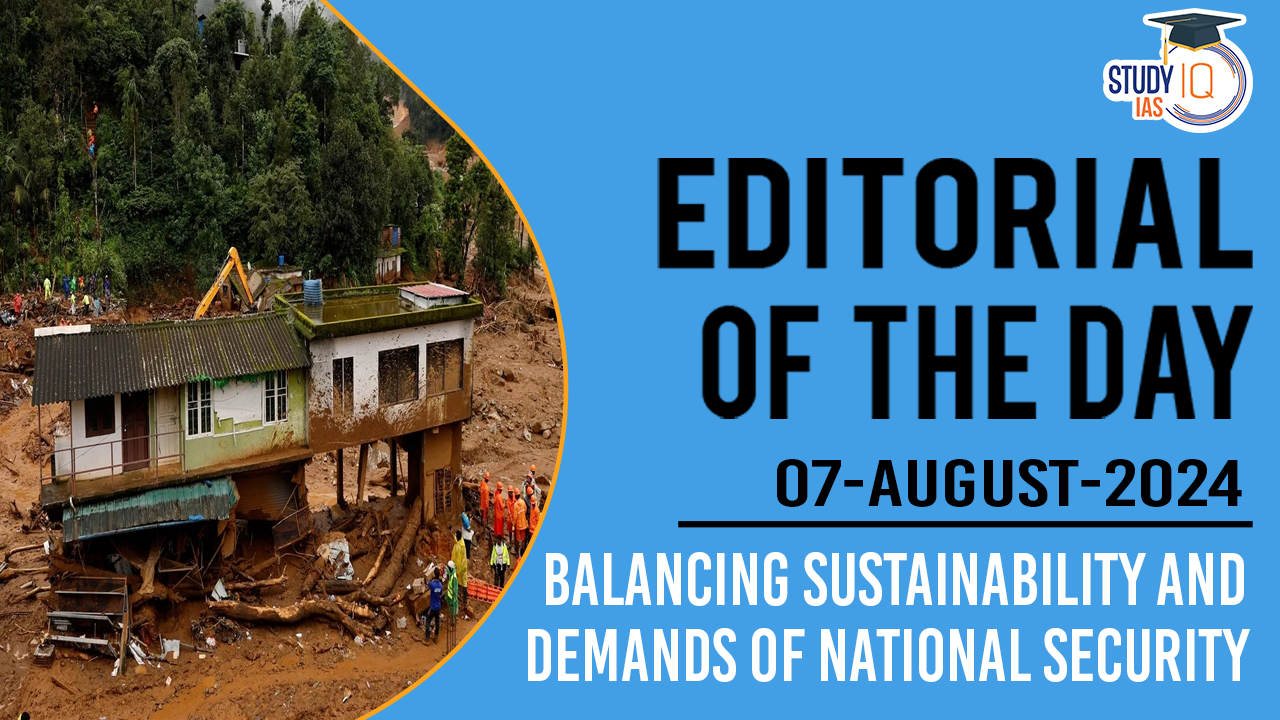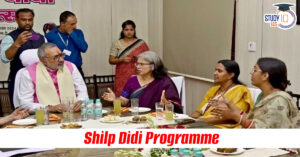Table of Contents
Context: Recent landslides and natural disasters highlight balancing national interest with the need for a green energy transition.
India’s Green Energy Transition
The green energy transition in India is marked by three key observations:
- Varied State-Led Transitions: The transition is not uniform across the nation, with different states progressing at varying speeds.
- Trade Policy Tensions: There is a conflict between the drivers of the transition and the country’s trade policy.
- Governance vs. Sustainable Development: There is a discrepancy between the pragmatic aspects of governance and the ethical need for sustainable development.
Focus on Green Electrification
- The transition primarily revolves around green electrification, emphasising the shift from fossil fuels to a non-carbon energy system. This encompasses:
- Electrification of transport, industry, buildings, and residential areas.
- The joint responsibility of electricity generation, transmission, and distribution, which is a Concurrent Subject shared between the Centre and states.
Progress
The Union Ministry of New and Renewable Energy (MNRE) has made significant strides:
- Aiming to meet 50% of India’s energy needs from renewables by 2030.
- Targeting the creation of 500 GW of RE installed capacity by 2030.
- Committed to bidding out 50 GW of solar generation capacity annually, exceeding the target by 25% in 2023.
Challenges
- Transmission Connectivity: Currently inadequate.
- Energy Storage: Grid-scale energy storage is needed, but remains a long-term issue despite technological progress.
- Green Finance: Limited availability and short duration of green capital; most investors seek profitable exits within 6-7 years, whereas a 25-year horizon is needed.
- State-Level Disparities:
- Advanced States: Telangana, Tamil Nadu, Kerala, Odisha, and Delhi have moved further and faster.
- Stalled Progress: Haryana has supportive policies but lacks effective implementation machinery.
- Financial Struggles: Rajasthan is financially stretched and struggles to provide incentives for the shift from fossil fuels.
- Geopolitical and Economic Dilemmas:
- China’s Dominance in Renewables: In 2023, China contributed 63% of the global renewable energy additions.
- Chinese solar panels are 85% cheaper than US panels and 55% cheaper than those from Southeast Asia.
- However, over-dependence on Chinese products poses national security risks.
- Carbon Taxes and Policy Dilemmas: The US, EU, and UK plan to impose taxes on the carbon content of imports.
- Balancing economic growth with sustainability creates significant policy challenges.
- Ethical Conundrum: The world faces an ethical challenge with global warming:
- Recent forest fires in Uttarakhand, air traffic disruption in Leh due to high temperatures, and Wayanad landslides due to heavy rains illustrate the human and economic costs of climate change.
- Current governance structures are hindered by rigid, self-serving national policies.
- China’s Dominance in Renewables: In 2023, China contributed 63% of the global renewable energy additions.
Suggestions
- Need for Alignment and Structural Redesign: The transition requires alignment among central government, state governments, public sector companies, private sector generators, and consumers, necessitating major structural and institutional redesign.
- Call for Cooperative Governance: A broader perspective beyond narrow political consideration is needed to address global warming, emphasising humanity, ethics, and cooperative governance over strict national interests.


 UNEP Champions of the Earth Award: UN's ...
UNEP Champions of the Earth Award: UN's ...
 Shilp Didi Programme: Empowering Women A...
Shilp Didi Programme: Empowering Women A...
 Is the Falling Rupee a Cause for Alarm?
Is the Falling Rupee a Cause for Alarm?

























